Icon reference
Many entities in DataGrip are marked with icons: there are icons on toolbar buttons, in the gutter, in the Files tool window , and so on. The majority of icons have tooltips that allow you to quickly grasp their meaning. Hover over an icon and wait for the tooltip with some brief information.
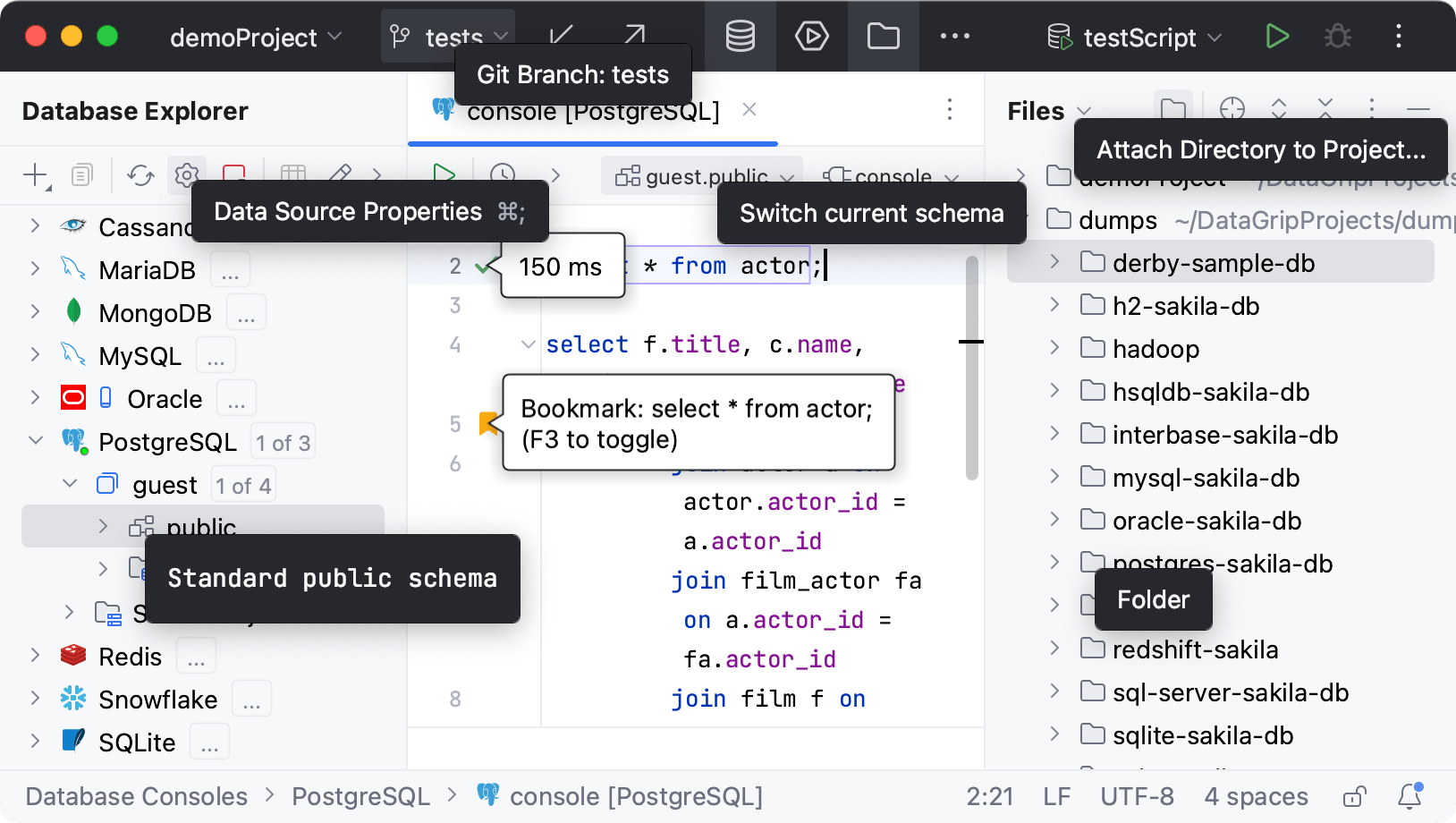
Gutter icons
Gutter icons are located in the editor on the left. Every icon in the gutter has a tooltip that explains its meaning.
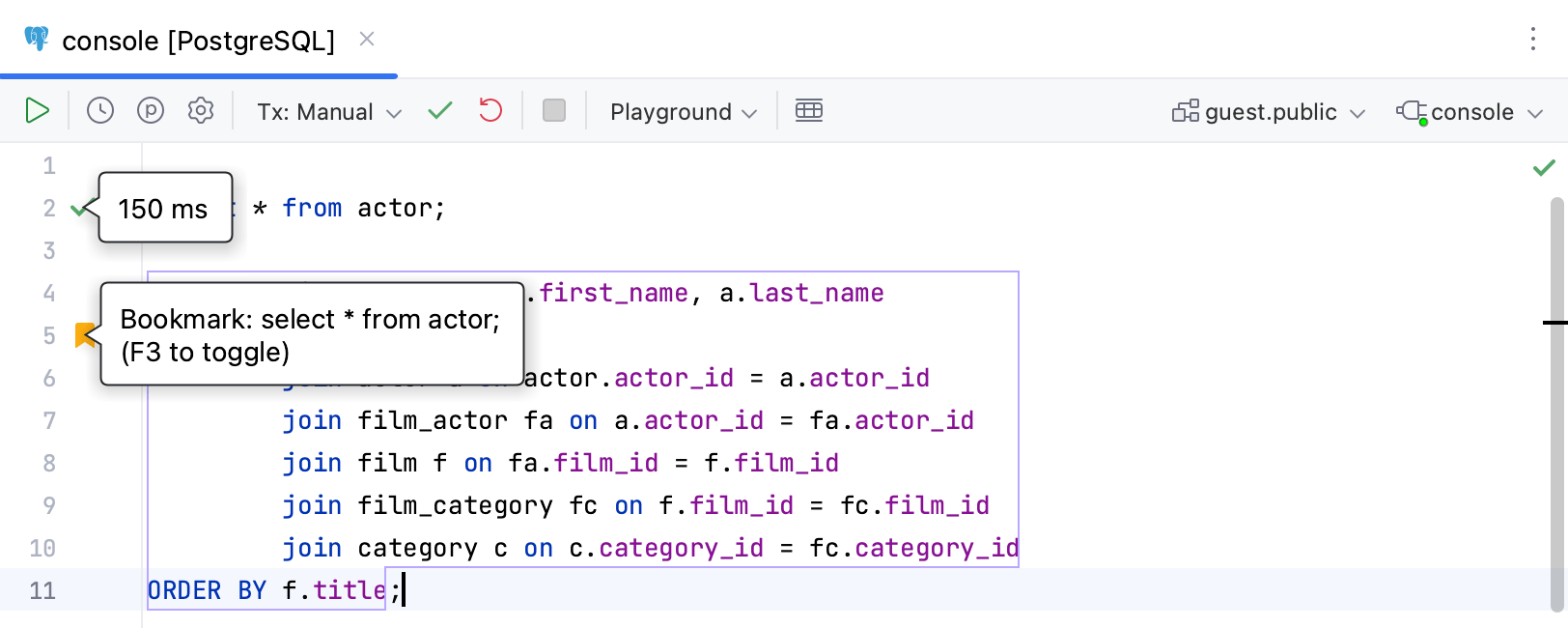
The list of available gutter icons depends on the configuration of your project, the frameworks that you use, and the plugins that you have installed. To access the list of gutter icons available for your project, go to .
For more information about gutter icons, refer to Gutter Icons.
Bookmarks
If you want to return to some place in your code later, you can mark any code line with a bookmark.
There are two types of bookmarks: anonymous bookmarks ![]() and bookmarks with mnemonics (lettered
and bookmarks with mnemonics (lettered ![]() and numbered
and numbered ![]() ). For more information about working with bookmarks, refer to Use bookmarks for navigation.
). For more information about working with bookmarks, refer to Use bookmarks for navigation.
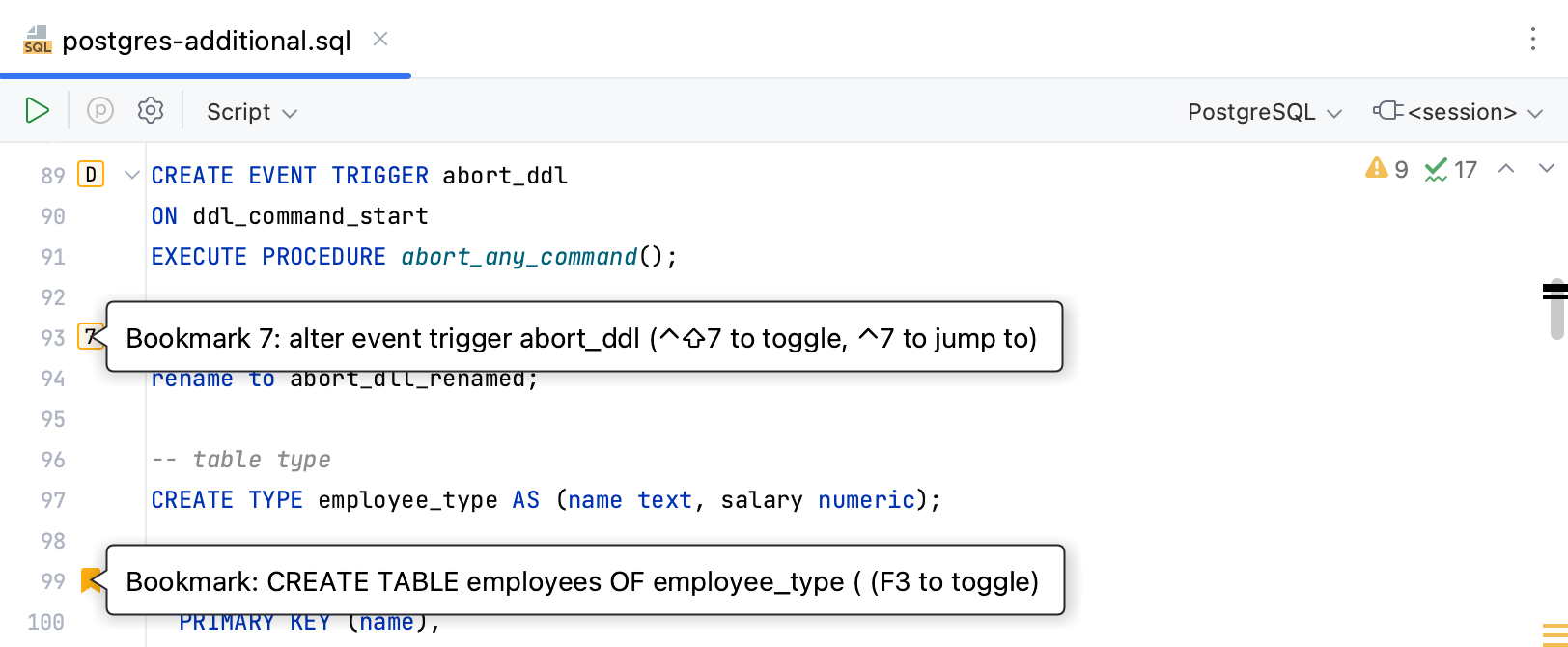
Toolbar icons
DataGrip has many tool windows, and almost every tool window has a toolbar with buttons. If you want to know what action a button performs, hover over it to display a tooltip with the action name.
File status markers (VSC)
If your project or attached folder is under version control, you can track uncommitted changes in a file by looking at the color indicators in the gutter. New, modified, and deleted lines have special markers by clicking on which you can open a diff, revert the changes, and perform other VCS-related actions. For more information, refer to Track changes to a file in the editor.
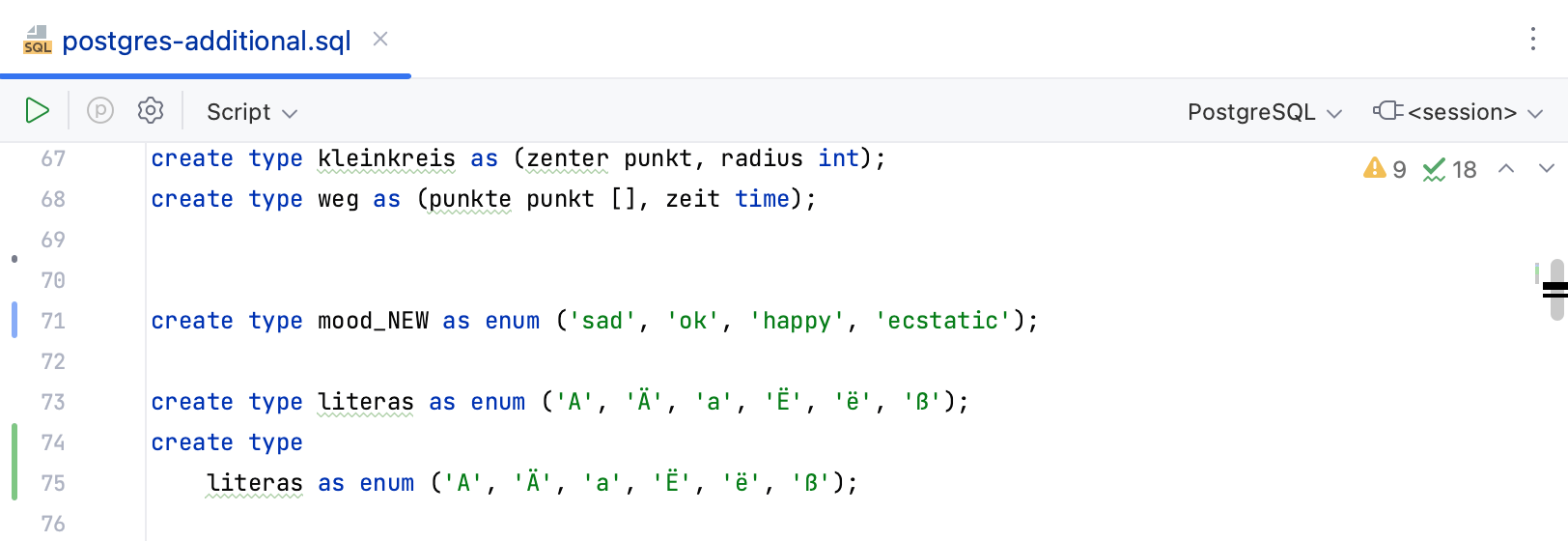
File type icons
Each file format in DataGrip has a dedicated icon. In the Files tool window ( ) , these icons help you quickly identify with what kind of files you are working with. To view the list of file types recognized by DataGrip and their icons, in the Settings dialog (Control+Alt+S), go to .
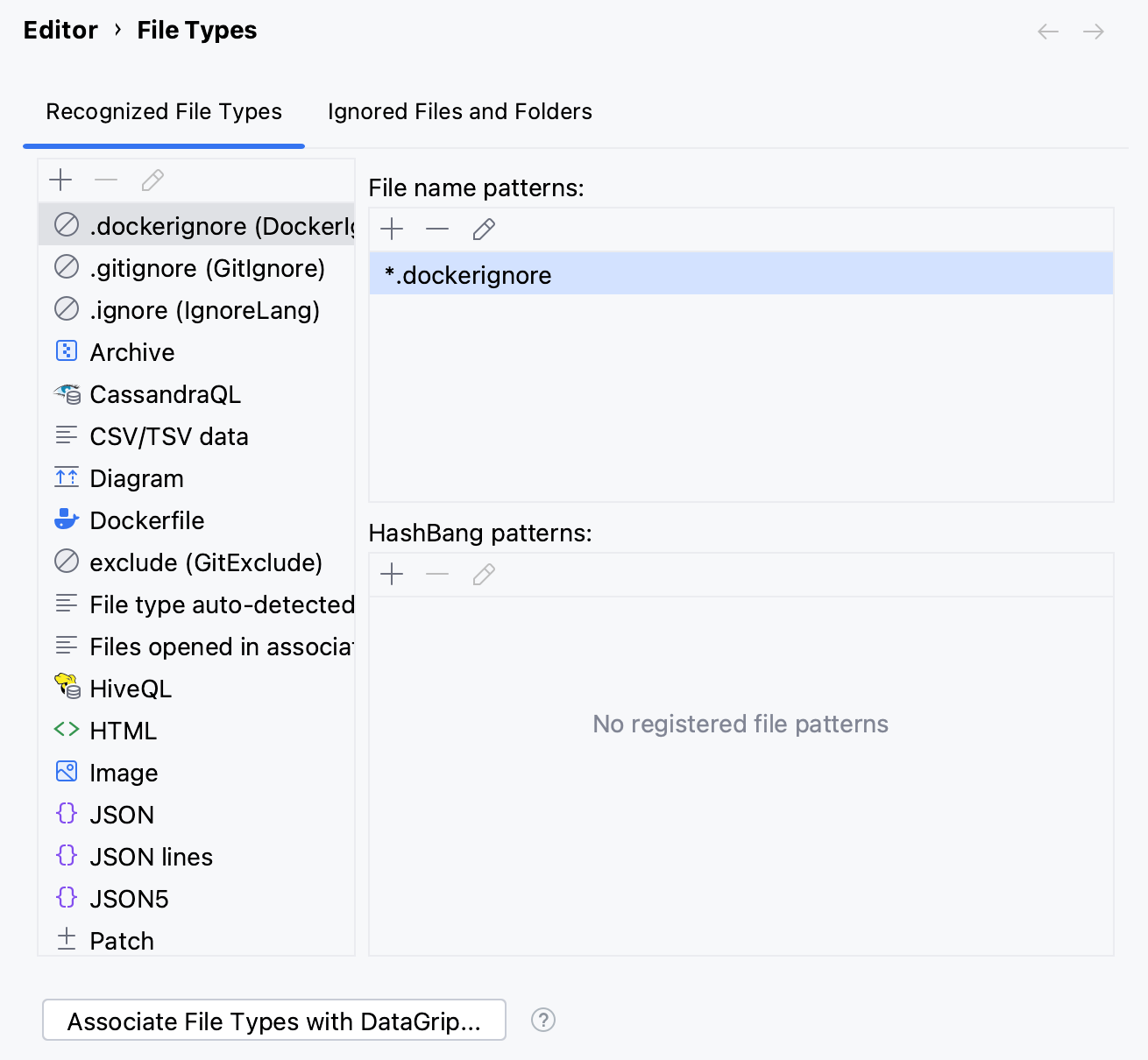
If a file in your project is marked with the icon, it indicates that DataGrip can't recognize it. In this case, you can register and configure a new file type.